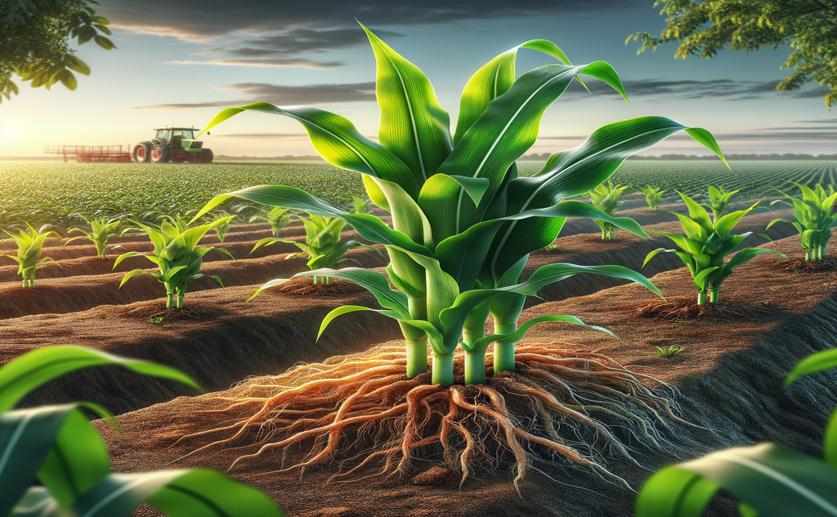
Agricultural Waste Biochars Improve Soil, Growth, and Nutrients in Maize Plants
Jenn Hoskins
5th June, 2024

Image Source: Natural Science News, 2024
Key Findings
- The study by Bahauddin Zakariya University in Pakistan found that acidified poultry manure biochar significantly improved maize seedling growth compared to other biochars
- Acidified biochars decreased soil and maize seedling nutrient contents (P, K, Na) and soil organic matter compared to non-acidified biochars
- Despite the decrease, all biochar treatments (acidified and non-acidified) provided higher nutrient and organic matter levels than control treatments
AgricultureEnvironmentPlant Science
References
Main Study
1) Agricultural waste-based modified biochars differentially affected the soil properties, growth, and nutrient accumulation by maize (Zea mays L.) plants
Published 4th June, 2024
https://doi.org/10.1186/s12870-024-05202-5
Related Studies
2) Kinetics of carbon mineralization of biochars compared with wheat straw in three soils.
3) Application of co-composted farm manure and biochar increased the wheat growth and decreased cadmium accumulation in plants under different water regimes.



 30th May, 2024 | Jenn Hoskins
30th May, 2024 | Jenn Hoskins